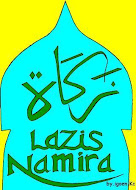
Alhamdullillah.....
Sekolah Namira Dalam pengembangan gedung baru untuk kelas VII dan IX, Mohon do'a dan restunya dalam proses pembangunannya.
Pembangunan ini menggunakan swadaya ahli dari para staf pengajar sekolah namira dan dibantu oleh beberapa tenaga pengawas dari P.T Pratita Medan,gedung ini berencana akan di selesaikan dalam jangka waktu lebih kurang 5 bulan.
Pembangunan ini merupakan bukti nyata dari komitmen Yayasan Fajar Islam dalam memajukan dunia pendidikan di lingkungan sekolah Namira, " Tidak banyak yang dapat saya lakukan, kecuali dalam bentuk pembangunan gedung dan sarana belajar para siswa di sekolah Namira ". Ulas Ketua Yayasan Fajar Islam Sekolah Namira.
Dalam kesempatan ini proses pembangunan di dukung juga oleh siswa PKL ( Peraktek Kerja Lapangan : red. ) dari Sekolah SMK Dwi Warna. Jalan STM medan. Yang di ketua oleh Bapak Ir. Aris Munandar.








Tidak ada komentar:
Posting Komentar